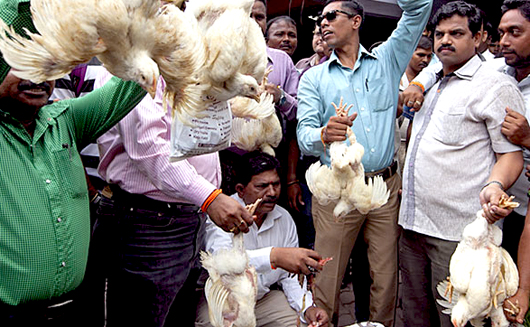Mumbai, Sep 11: The Shiv Sena has strongly criticised the Jain community for insisting on a ban on meat during Paryushan Parva, warning it not to take on the “sons of the soil” with such demands.
An editorial published in the Shiv Sena’s mouthpiece Saamna on Thursday said: “Jains must not follow the path of Muslims and become fanatics. At least Muslims have Pakistan to go to. Where will the Jains go?”
Warning Jains not to take on the “sons of the soil” with such demands, the editorial said the community would “bite the dust” if it persisted with such measures.
Paryushan Parva is an eight-day period during which members of the Jain community observe fast and pray, and authorities in Maharashtra imposed a four-day ban on meat.
Sections of the Jain community have been pushing for a ban on slaughter of animals during Paryushan Parva, citing their religion’s emphasis on non-violence.
But the Saamna editorial described the Jain community’s emphasis on non-violence hypocritical, reminding it of the 1992-93 riots.
“The Sena protected Jains and their businesses from mobs. Hordes of Jains queued up outside Matoshree, wanting to thank Balasaheb for this. Why didn’t they remember this doctrine of non-violence then?” the editorial stated.
The editorial asked, “If a terrorist like (Lashkar-e-Taiba member Ajmal) Kasab was to enter Mumbai during this period, would a Jain protect him from being killed and instead offer up his own life?”
Kasab was the lone terrorist to be captured alive during the 2008 Mumbai attacks. He was later convicted and hanged.
The editorial went on to say that violence is not restricted to the killing of animals. “A large number of the city’s builders are Jains and have no qualms accepting black money from flat buyers. Accepting black money is a sin and also a form of violence. Do they stop accepting black money during Paryushan?” it questioned.






Comments
Add new comment